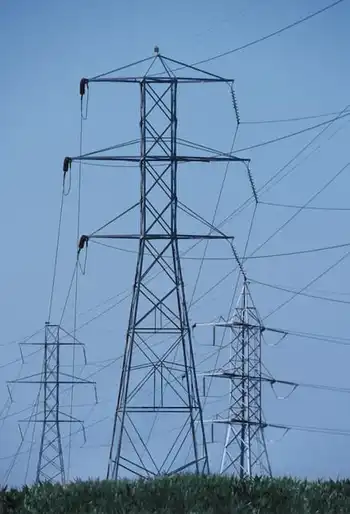Closure of Salem Harbor power station urged
By Boston Business Journal
Electrical Testing & Commissioning of Power Systems
Our customized live online or in‑person group training can be delivered to your staff at your location.

- Live Online
- 12 hours Instructor-led
- Group Training Available
In response, a spokesman for the grid operator, ISO New England, said the organization is not blocking the closure and is looking for solutions that would eliminate the need for the plant.
The company that owns the Salem power plant, Dominion Resources Inc. of Virginia, said in November that the plant is expected to close within five years. But ISO has signaled that this could pose problems for the reliability of the grid, since the 745-megawatt Salem Harbor plant is among the stateÂ’s largest sources of power.
In a recent letter to ISO New England — posted by the Conservation Law Foundation — state energy and environmental secretary Ian Bowles asked that “all cost effective options” be considered to “allow Salem Harbor to be retired while safeguarding reliability.”
“I am concerned that if Salem Harbor is not allowed to retire, Dominion Energy will be forced to spend hundreds of millions of dollars on environmental upgrades to extend the life of an outmoded plant,” Bowles wrote.
“In my view, Massachusetts consumer dollars should be invested in clean energy solutions — better transmission, efficiency, conservation and renewables — rather than in keeping open an older generation coal plant that cannot compete economically and struggles to meet standards necessary to protect our environmental and public health,” wrote Bowles, who leaves the Patrick Administration at the end of the year.
In a recent e-mail, ISO spokesman Marcia Blomberg said that “the ISO is not preventing Dominion from retiring its Salem Harbor units, and we don’t have the authority to do so.”
“The ISO is aware of the situation and in accordance with our responsibility to ensure reliability, we have been studying the power system needs on the North Shore,” she said. “We are working with the utility companies to design and implement a transmission solution that will eliminate the reliability need for Salem Harbor.”
Dominion spokesman Dan Genest said previously that the company is basing its Salem Harbor closure plans on the expectation that the U.S. Environmental Protection agency will put stricter regulations on nitrogen oxide and sulfur dioxide emissions in place by 2015 or 2017.
Genest said the company hasn’t set a date for closing the plant, which has been open since 1951 and employs 145 people. The company could see scenarios in which the plant does not end up closing, he said — such as if the EPA regulations are delayed, or if ISO rules that the plant is crucial for grid reliability.
Environmental advocates, such as the Conservation Law Foundation, have called for Salem Harbor to either close or put stronger environmental measures put in place. In June, the organization filed a federal lawsuit alleging hundreds of violations of the U.S. Clean Air Act at the power plant in recent years.
Coal plant operators around the U.S. have also been under increasing pressure from government and public scrutiny due to climate change, since coal produces the largest amount of carbon dioxide emissions of any power source.











